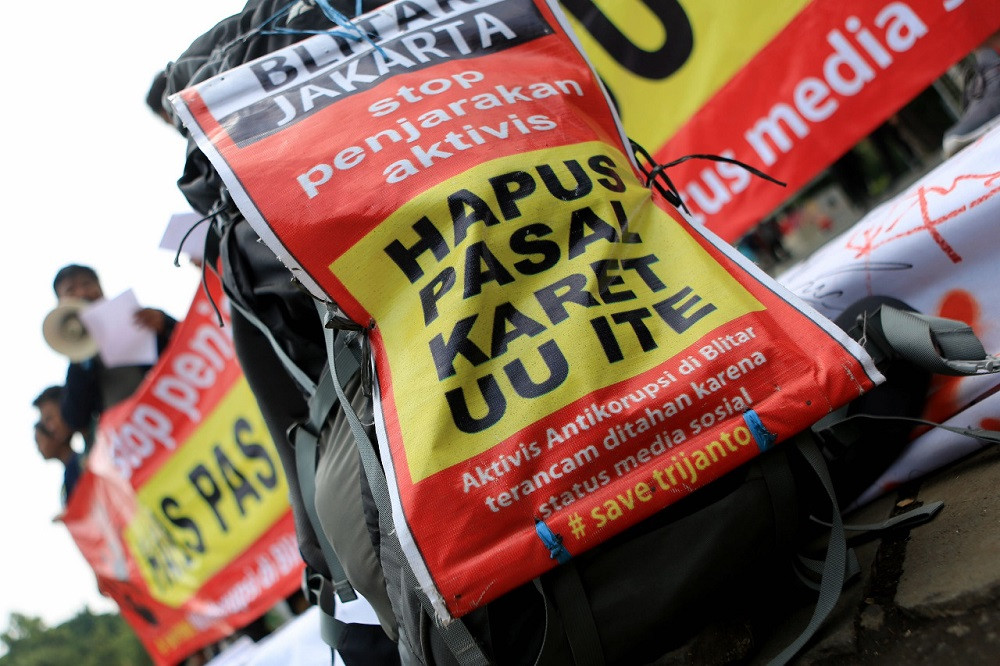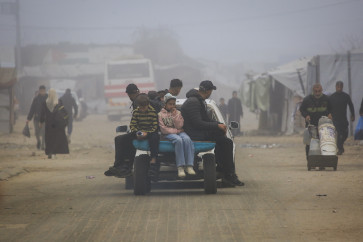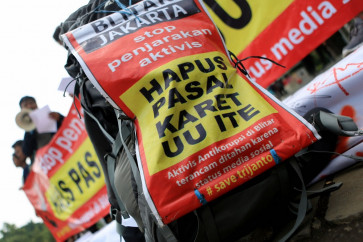Popular Reads
Top Results
Can't find what you're looking for?
View all search resultsPopular Reads
Top Results
Can't find what you're looking for?
View all search resultsOvercoming trauma of 'criminalization': Is Indonesia muting critical voices?
Government critics and activists allegedly criminalized by the use of the controversial ITE Law has left them traumatized, with personal and professional setbacks, and often without legal recourse under the current system to clear their names.
Change text size
Gift Premium Articles
to Anyone
It was dawn on Sept. 27, 2019, and singer Ananda Badudu was fast asleep. Suddenly, there was a knock on the door.
“I found myself surrounded by six to seven policemen. They had a warrant for my arrest,” recalled Ananda, now 33. His worst fear had come to pass.
In the days preceding his arrest, a series of demonstrations against a proposed law rocked Indonesian cities, with critics saying that it would curtail civil rights and weaken anticorruption efforts. Using his platform as a former member of popular folk band Banda Neira, Ananda had organized a crowdfunding campaign to support the protesters. He had expected some pushback from authorities, but not this.
“They didn’t tell me what I was being charged with, only that I had to come with them,” he said.
Dragged into a cold interrogation room at the Greater Jakarta Metropolitan Police headquarters (Polda Metro Jaya), Ananda alleged that he was subject to physical and psychological violence, allegations that the police deny. He said he was repeatedly denied the right to legal counsel and was peppered with questions tailored “to fill the police incidence report”.
Then he was suddenly let go, after more than six hours of uncertainty. Still drowsy from lack of sleep, the shell-shocked Ananda emerged outside the station to be faced with a mob of journalists and the discovery that his arrest had caused a minor sensation. As the cameras rolled, he revealed that scores of student protesters were still being detained inside the station and subject to inhumane treatment. Cue pandemonium.
Barely seven months later, a variation occurred on the same theme. On April 22, 2020, researcher Ravio Patra was arrested after allegedly criticizing a government official for conflict of interest.



















